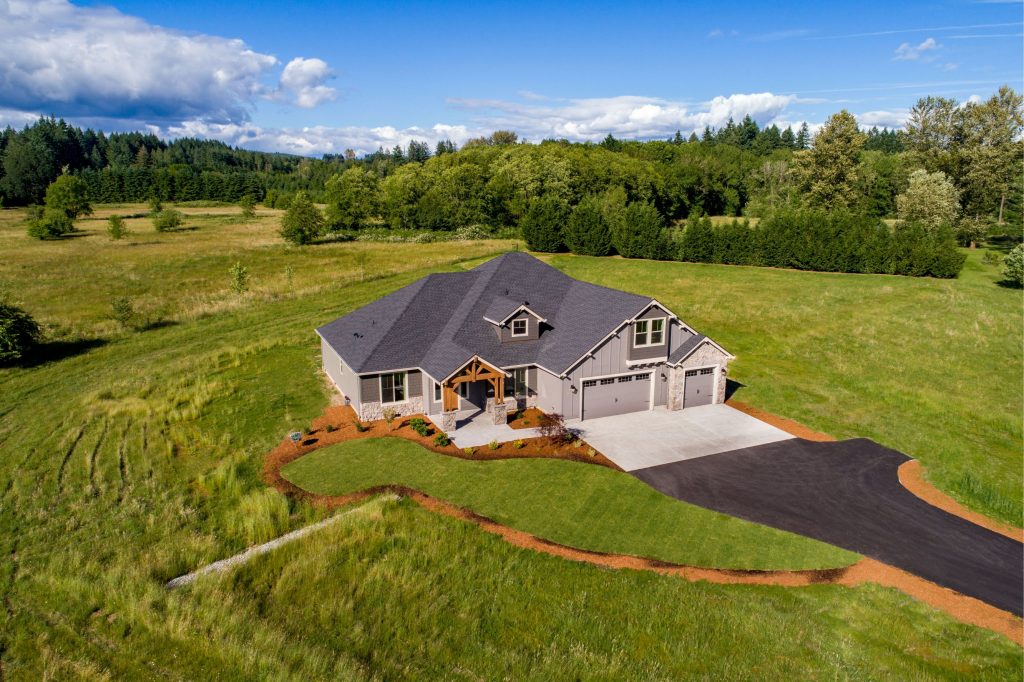Finding a plot of land to build your home is an exciting and transformative endeavor. With an acre or even half an acre of land at your disposal, you can surely make the best for your needs. We’ll explore the various aspects you need to consider before building your home.
Zoning and Permits:
Ensure that you are familiar with local zoning regulations and building codes. Find out what is the zoning of the parcel you are interested in. Usually every county has a search area on their county website where you can put in the address or parcel number of the property. This should pull up a lot of information including the zoning codes (HIGHLIGHT and LINK TO BLOG POST ABOUT ZONING)). If it is residential zoning, you should be good to go. If you have agricultural or conservation zoning, you can still build a home on it–just make sure to check on the requirements. Acquire the necessary permits and licenses to ensure your project is compliant with local regulations. Consulting with professionals or local authorities can provide valuable guidance during this process.
Planning and Design:
Before embarking on the construction, it is essential to thoroughly plan and design your home. Consider the size, layout, and architectural style that aligns with your needs but also that works for the area and land type. Be sure to take an expert with you, so you have a realistic picture of what you can do. It’s important that before you begin planning your home, you should know where your septic system goes unless you can hook into the city sewer. A few calls to the county zoning or environment department will tell you more about your area. This will ensure your vision for a home while ensuring practicality and functionality.
Land Preparation:
Prepare the land for construction by clearing any trees, vegetation or debris. Assess the topography and consider any necessary grading or leveling to ensure a stable foundation. Depending on the soil conditions, you may need to conduct soil testing to ensure the stability of the land for construction purposes.
Infrastructure and Utilities:
Connecting your home to essential utilities such as electricity, water, and sewage systems is something to consider. Consult with utility providers and the county to understand the process and requirements for connecting your property. Remember you could also be in an area that does not have sewer or water connection, so consider other options too. Additionally, find out about installation of internet and cable connections for modern-day conveniences if needed.
Energy Efficiency and Sustainability:
When you build your home, there is an opportunity to incorporate energy-efficient and sustainable features. Consider installing solar panels, energy-efficient appliances, and incorporating passive design principles to reduce your carbon footprint and save on energy costs in the long run. Landscaping choices can also be environmentally conscious, using native plants and implementing water-efficient irrigation systems. Although it is not essential, but it is something to consider for your own satisfaction.
Outdoor Living Spaces:
In addition to a home, you might want to build a small vegetable garden or simply beautify your exteriors. You could design a small patio or deck area to enjoy the tranquility of your surroundings. Incorporate landscaping features such as a garden, pond or walking paths to enhance the natural beauty of your property to make the most of your parcel of land.
Security and Privacy:
Consider security and privacy measures to protect your property and loved ones. Fencing and gated entrances can provide peace of mind. Strategically placed trees or hedges can create a natural buffer, enhancing privacy without compromising the aesthetic appeal of your property. If your land is off the beaten path, you might not need the privacy features of walls and fences, however a few hedges or trees might just enhance your property.
While building a house on an acre of land offers a unique opportunity to create your own vision, careful planning will help you transform your dream into reality. Remember to adhere to local regulations, work with professionals, and consider sustainability and energy efficiency.





